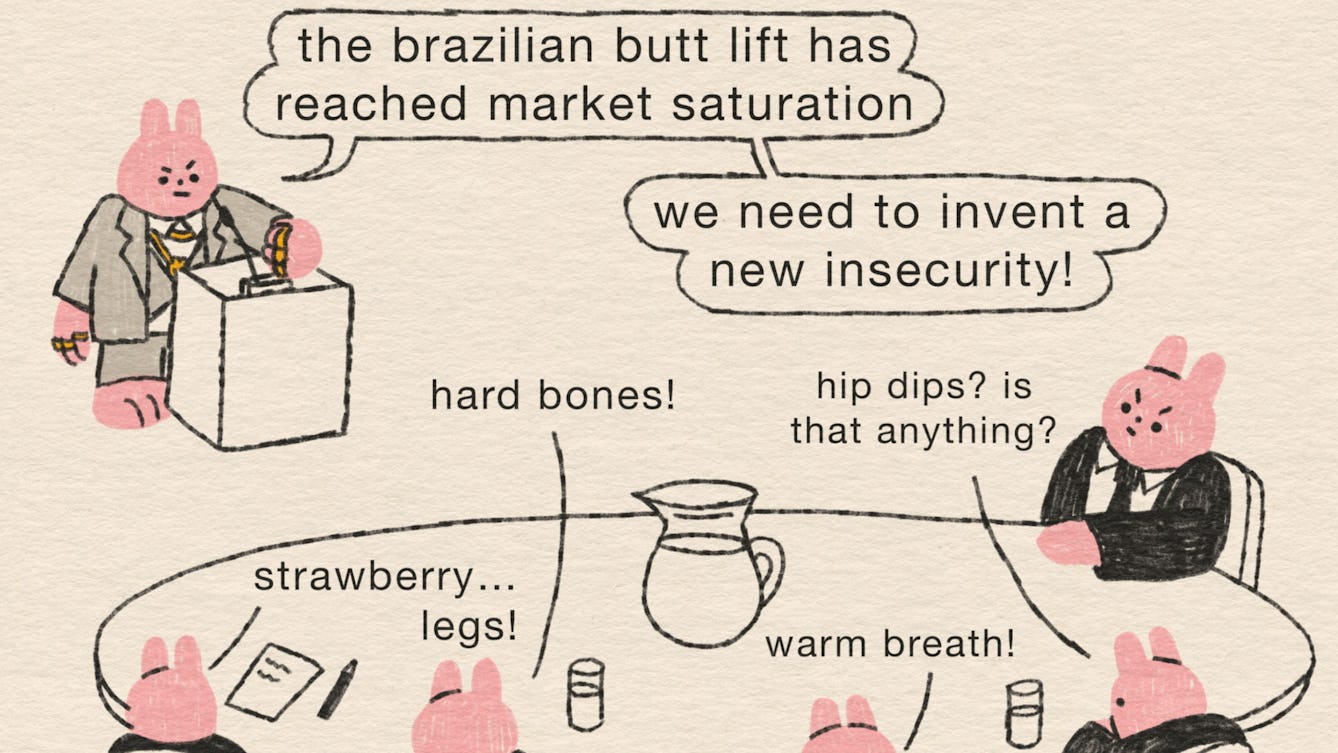
- Comic
- Comic
Crisis meeting
I’m sorry, but wtf are “hip dips”?
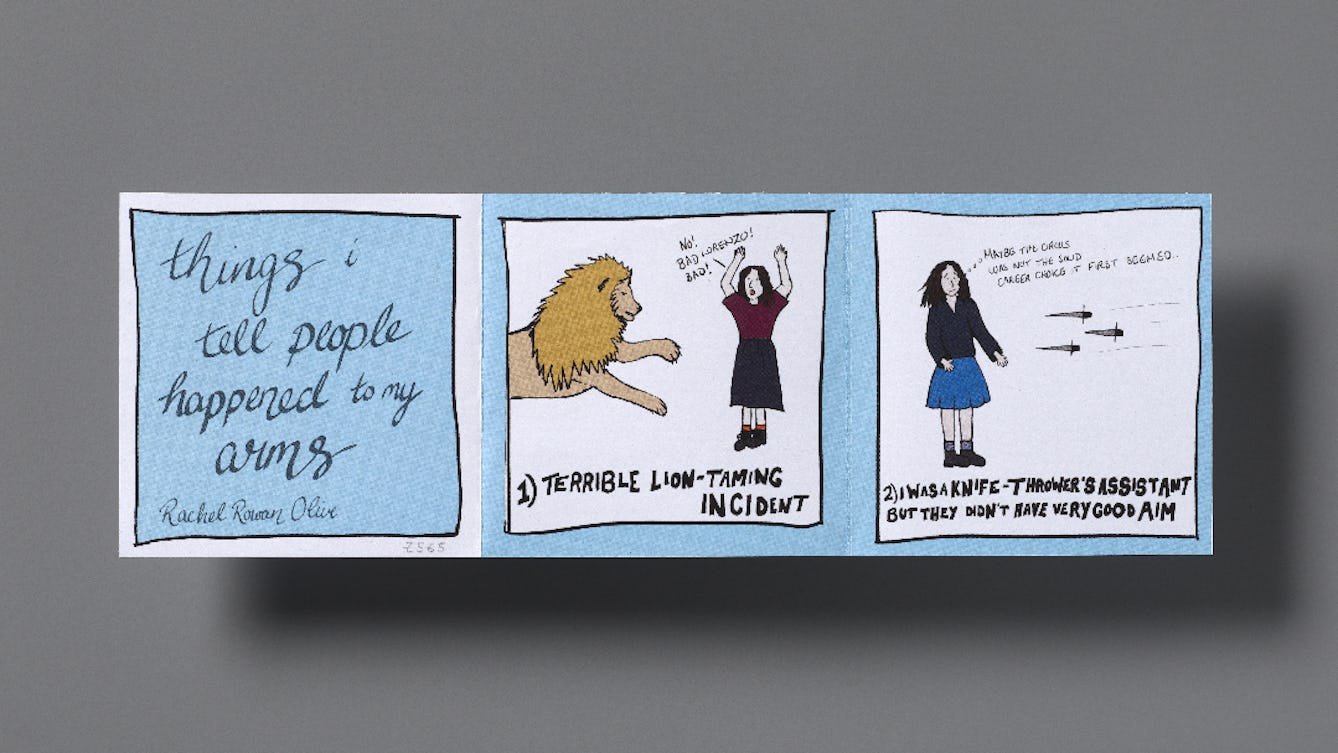
- In pictures
- In pictures
Neuroqueering comics
Researcher and zine-maker Lea Cooper considers how comic-zines use the distinctive qualities of zines to explore some of the complex connections between memory, autobiography, disability, neurodivergence and queer identity.
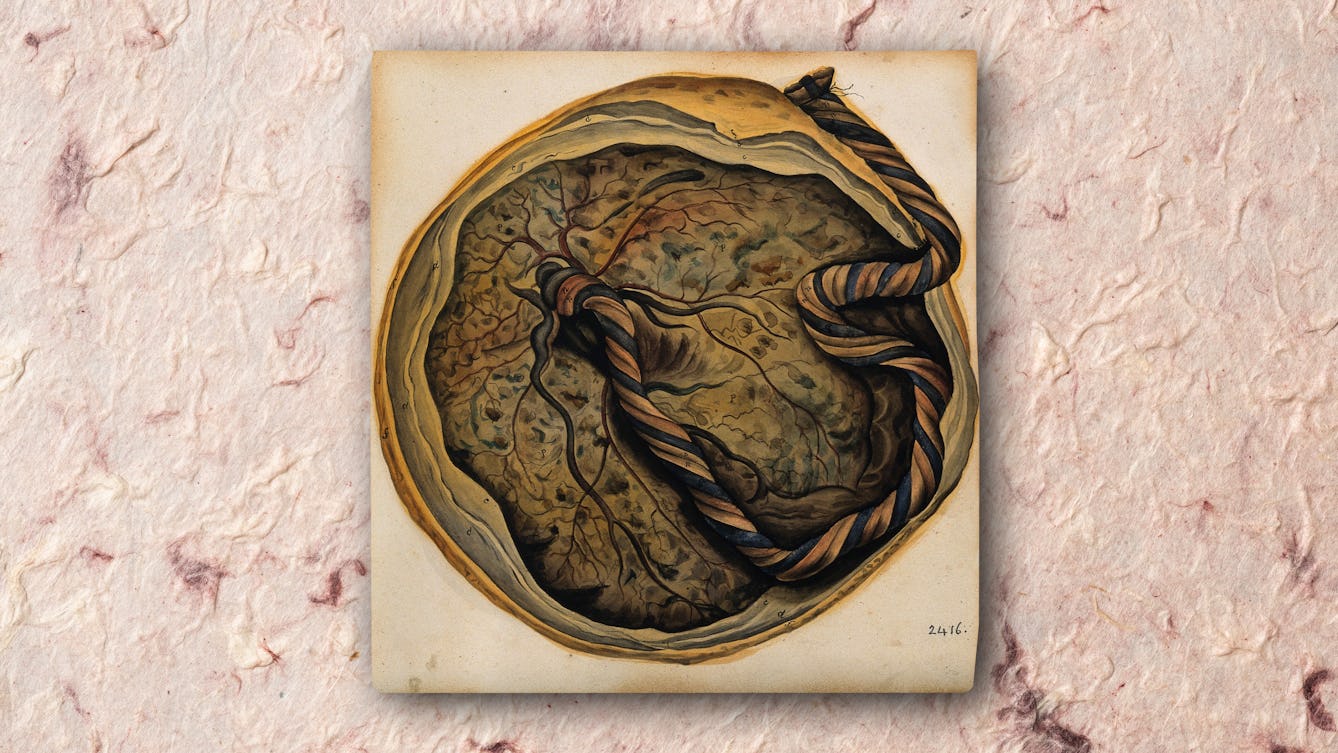
- Article
- Article
Womb milk and the puzzle of the placenta
A human baby needs milk to survive – and this holds true even before it’s born. Joanna Wolfarth explores “womb milk”, as well as ancient and modern ideas about the placenta.
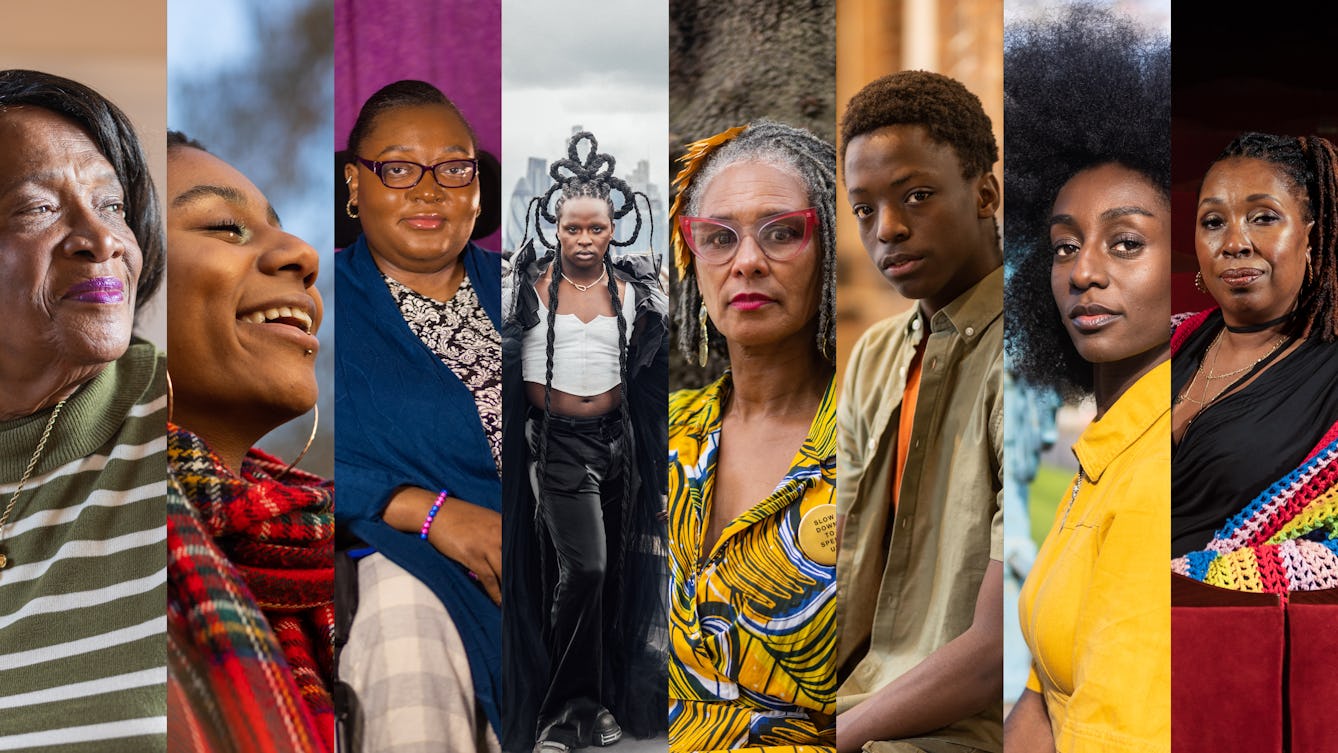
- Photo story
- Photo story
‘My Hair Is Not…’
Eight Black people talk about their relationship with their hair – their hairstyle history, their experiences, and how they decided to have natural hair.
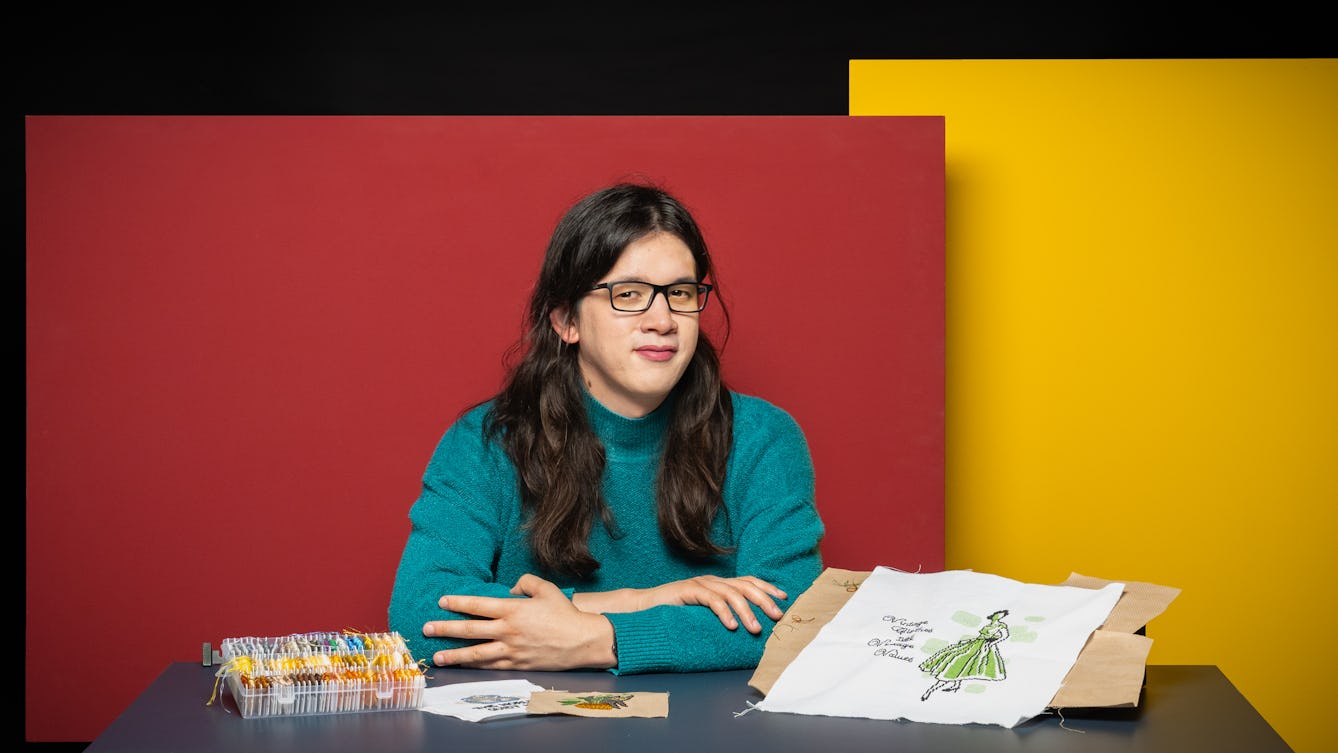
- Article
- Article
Hyperfocus and hobbies
Alex Chan talks about the power of ADHD-associated hyperfocus and how they’ve become wary of feeding it too often.
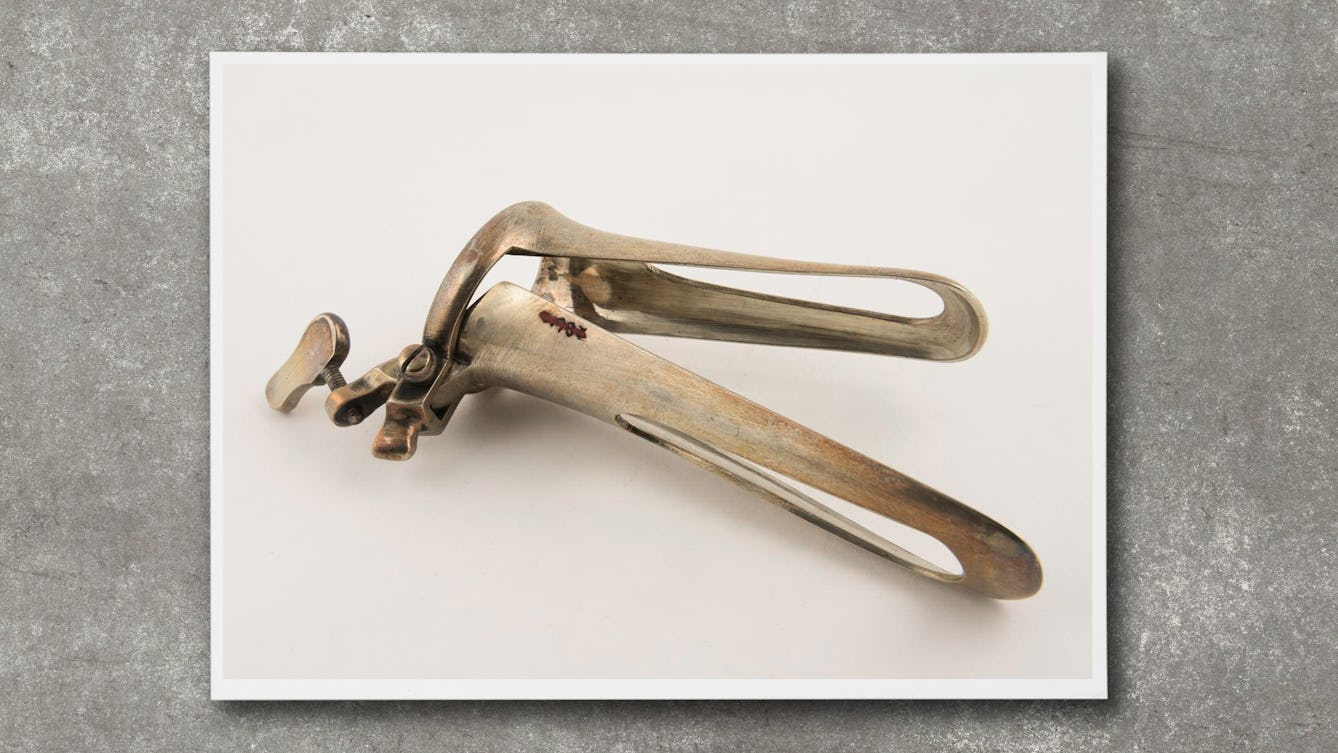
- In pictures
- In pictures
A nasty history of the vaginal speculum
The vaginal speculum carries the weight of generations of preconceptions about morality, blame and attitudes to pain. Lalita Kaplish explores the history of the implement and how societies shaped its use.
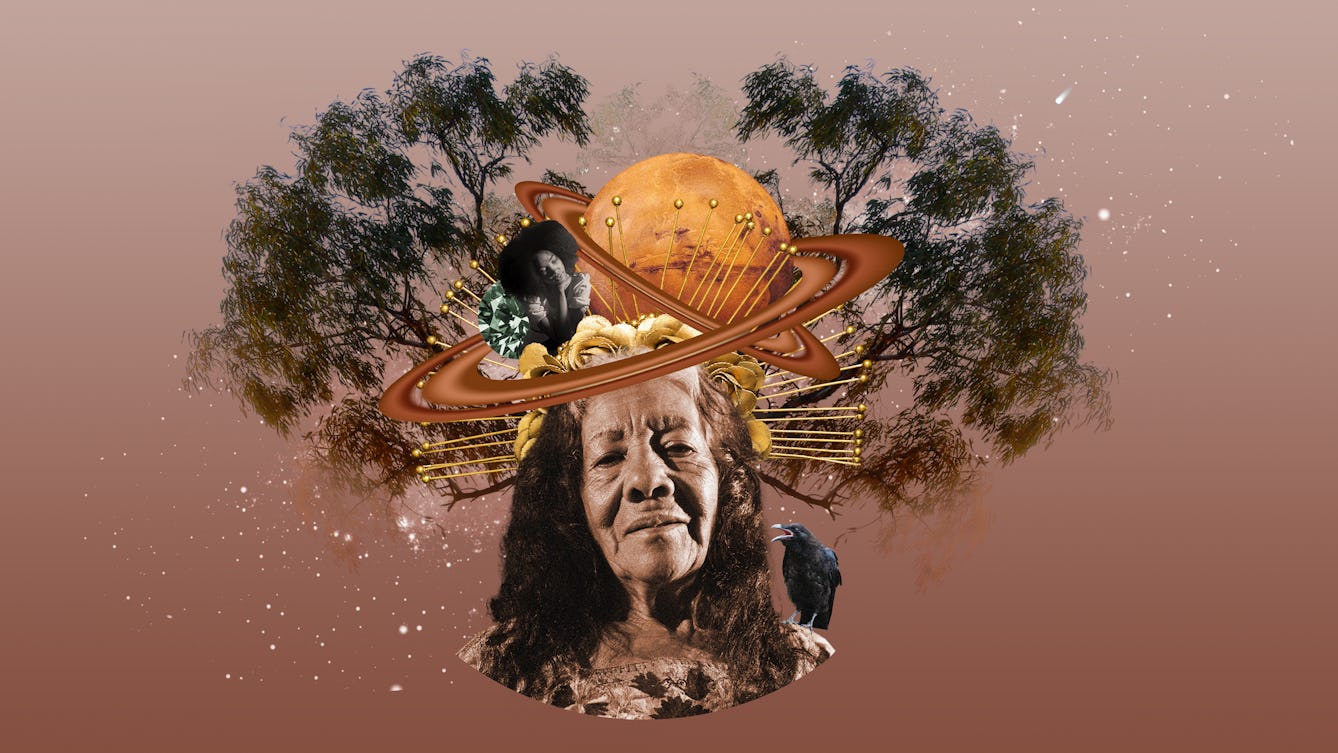
- Article
- Article
Crones
Menopause can be tough when nobody talks about it and all the stereotypes are negative, but it can also be transformative, marking the start of a new stage of life - cronehood.
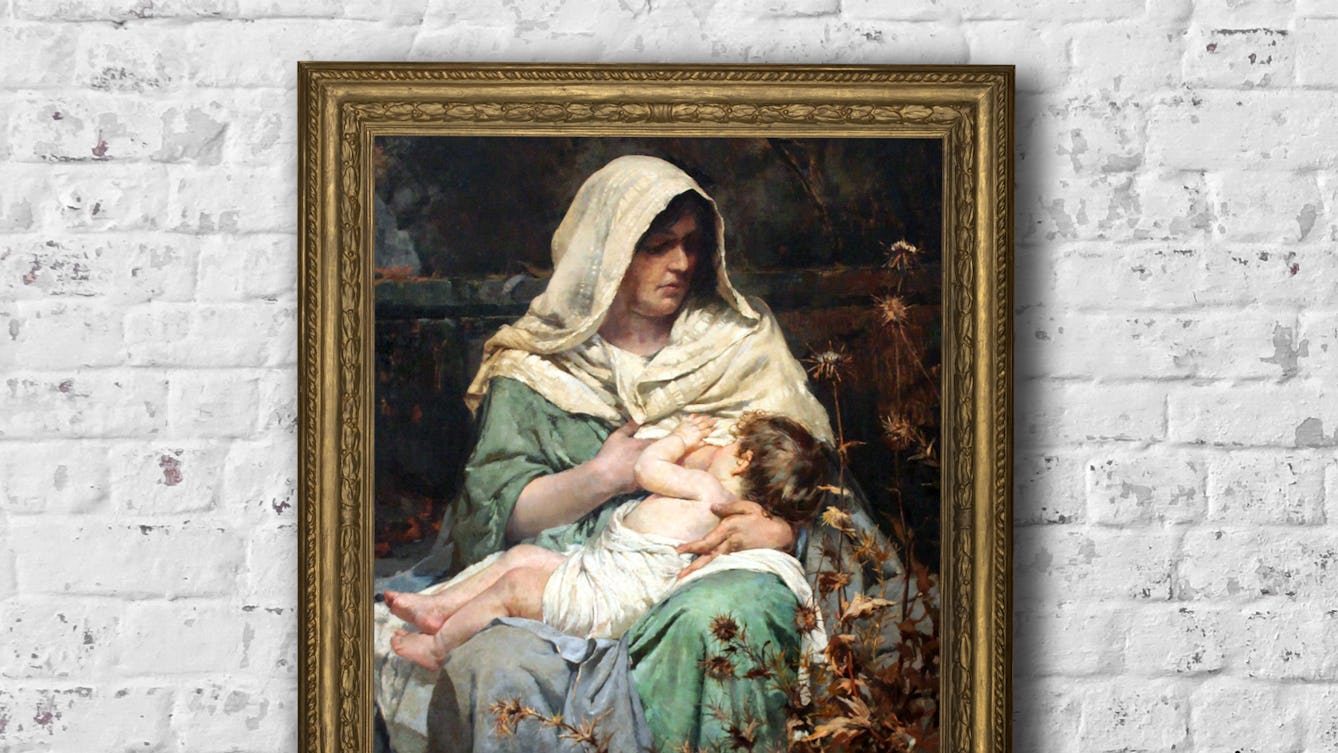
- Article
- Article
Are you still nursing?
Julia Martins might get the side-eye for breastfeeding a three-year-old in the UK but, as she explains, examples from history, as well as the cultural norms of Brazil, where she grew up, are firmly on the side of extended nursing.
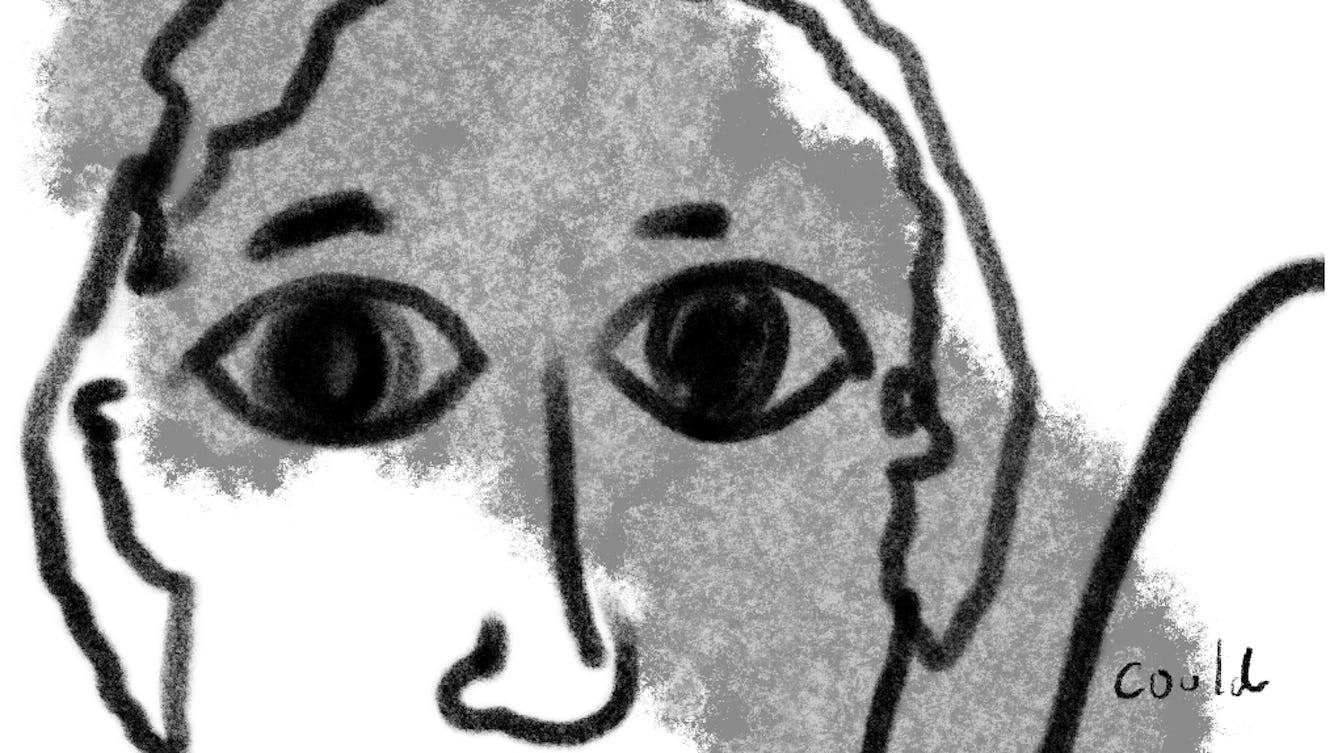
- Comic
- Comic
A shared experience
Having a simple conversation with another person brings such pleasure.
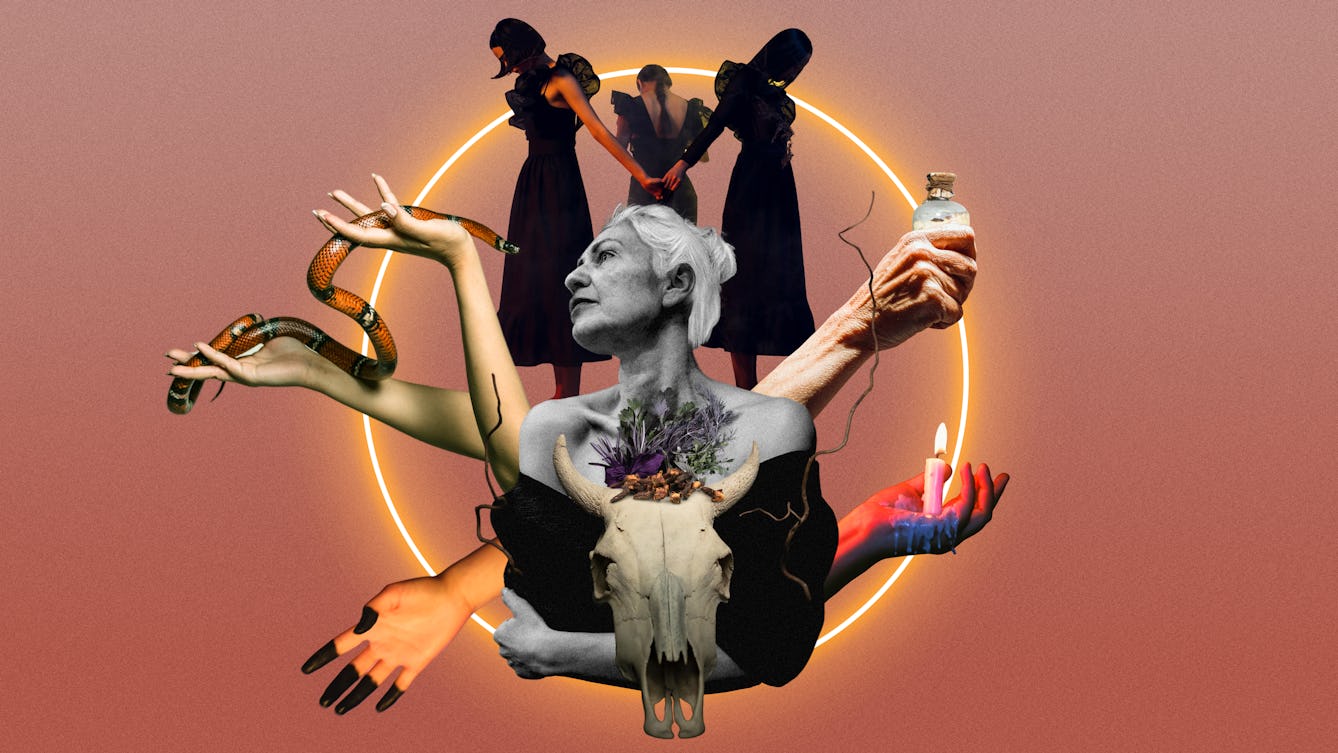
- Article
- Article
Witches
Many of the women persecuted as witches in the 16th-century “witch craze” were over 50 and exhibited signs of menopause. Helen Foster suggests that the stigma of the wicked witch still affects older women and how they deal with menopause.
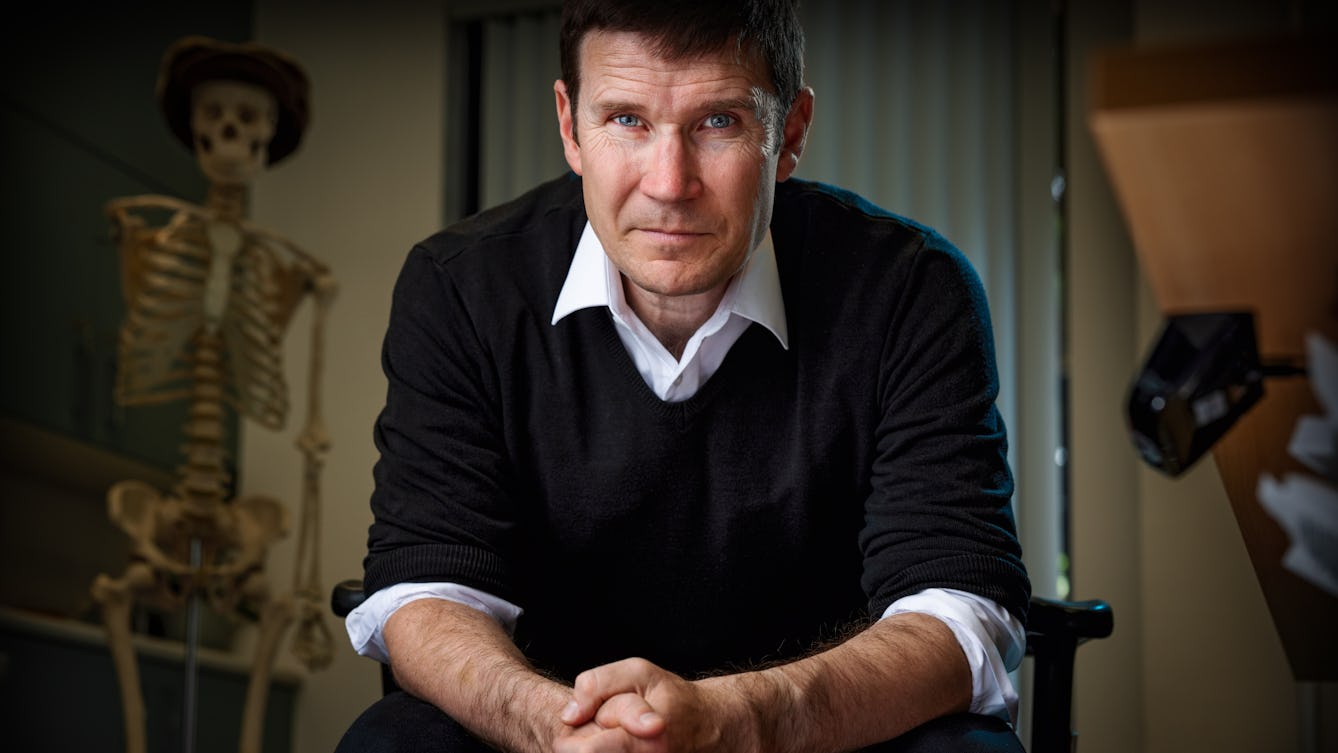
- Book extract
- Book extract
Why the NHS is worth saving
In this extract from his latest book, ‘Free For All’, Dr Gavin Francis poses challenging questions to be addressed if a health service that’s free for all at the point of use is to remain possible.
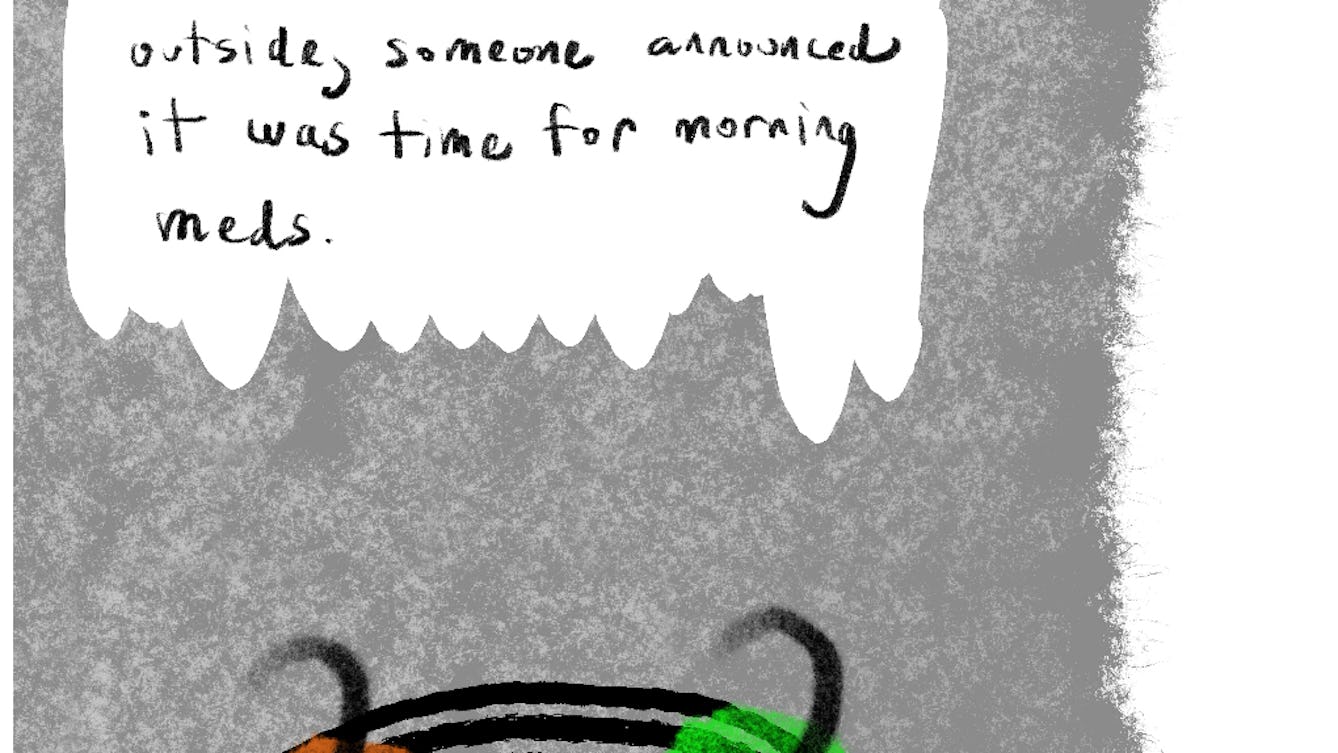
- Comic
- Comic
Reclaiming reality
While hospital routine and meds get to work on the psychosis, you can start to draw the threads of your life back together.
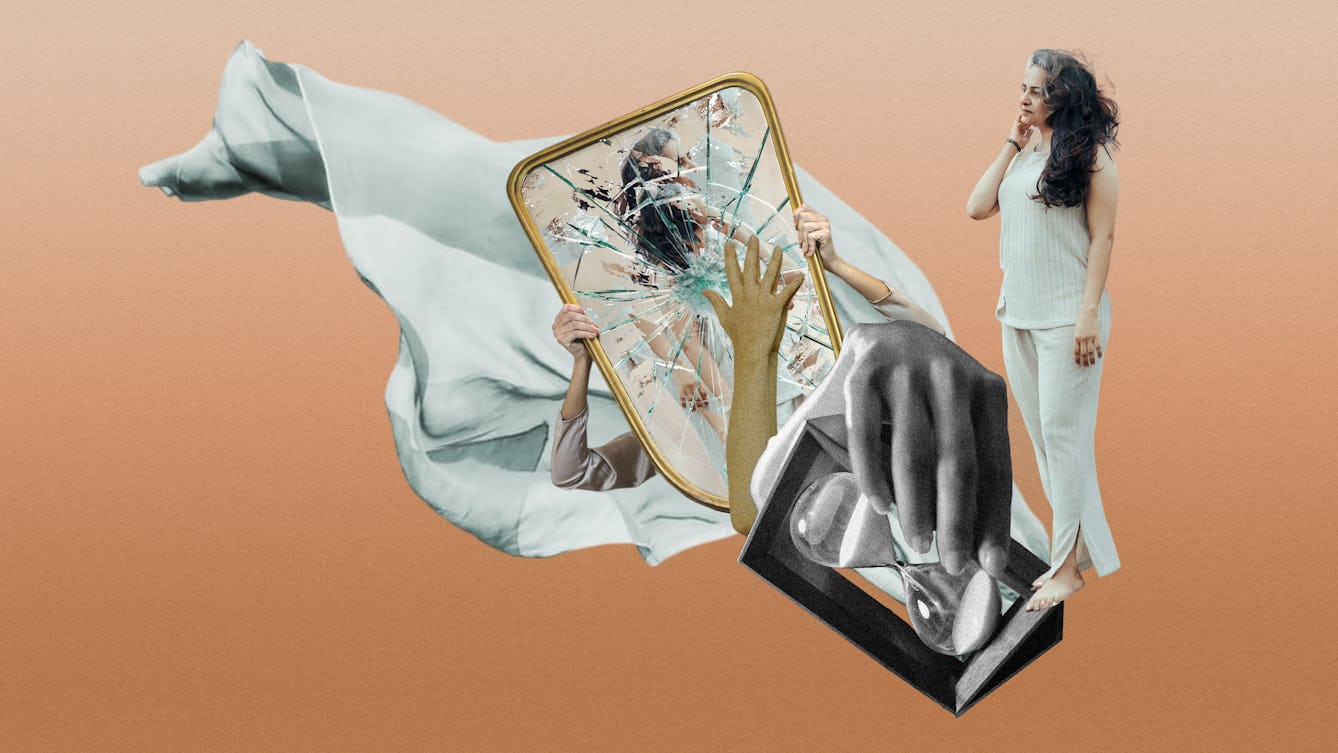
- Article
- Article
Invisibility
Why do menopausal women feel invisible? Because nobody talks about menopause or because society doesn't value older women?
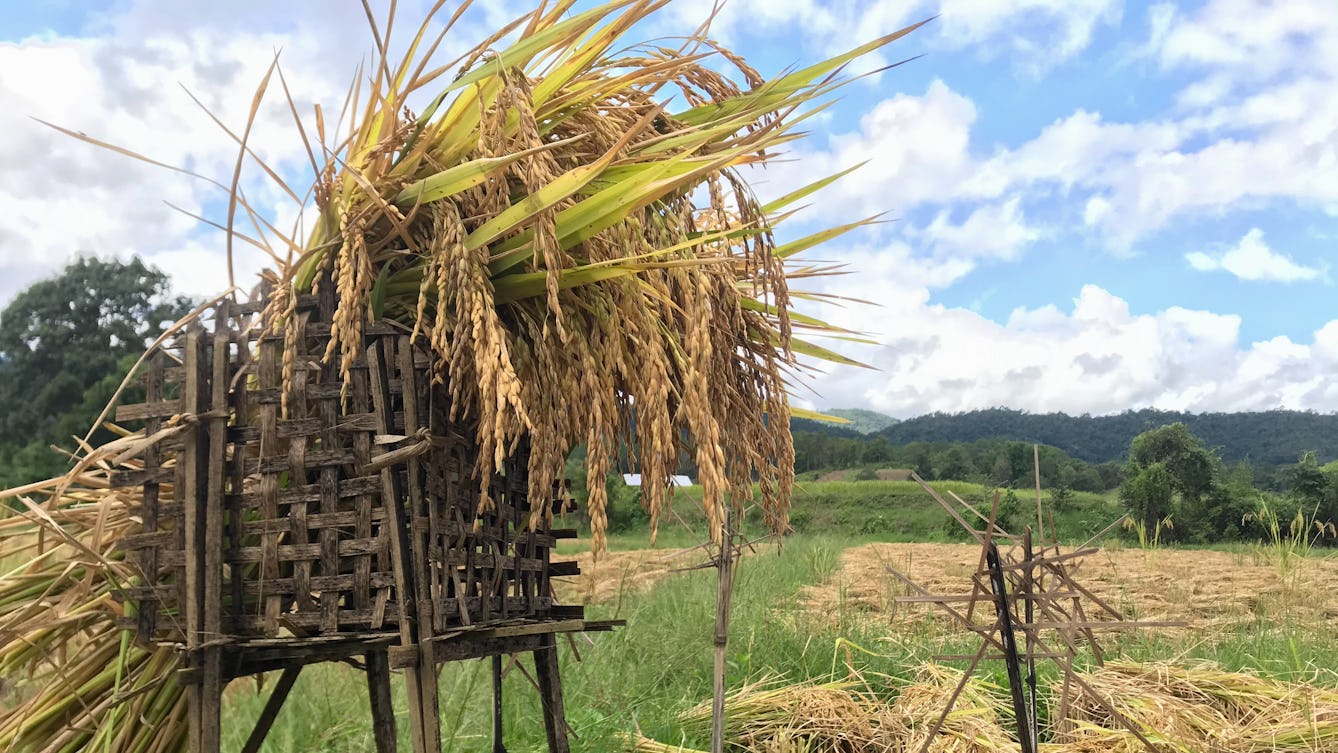
- Article
- Article
Intertwined with air
Siwakorn Odochao details his people’s way of perceiving trees and humans as intimately connected, and draws on the air as the element that weaves between them. Through the co-dependency of humans and trees to prepare the air for each other, he elaborates on the relationship between air, health and environment.
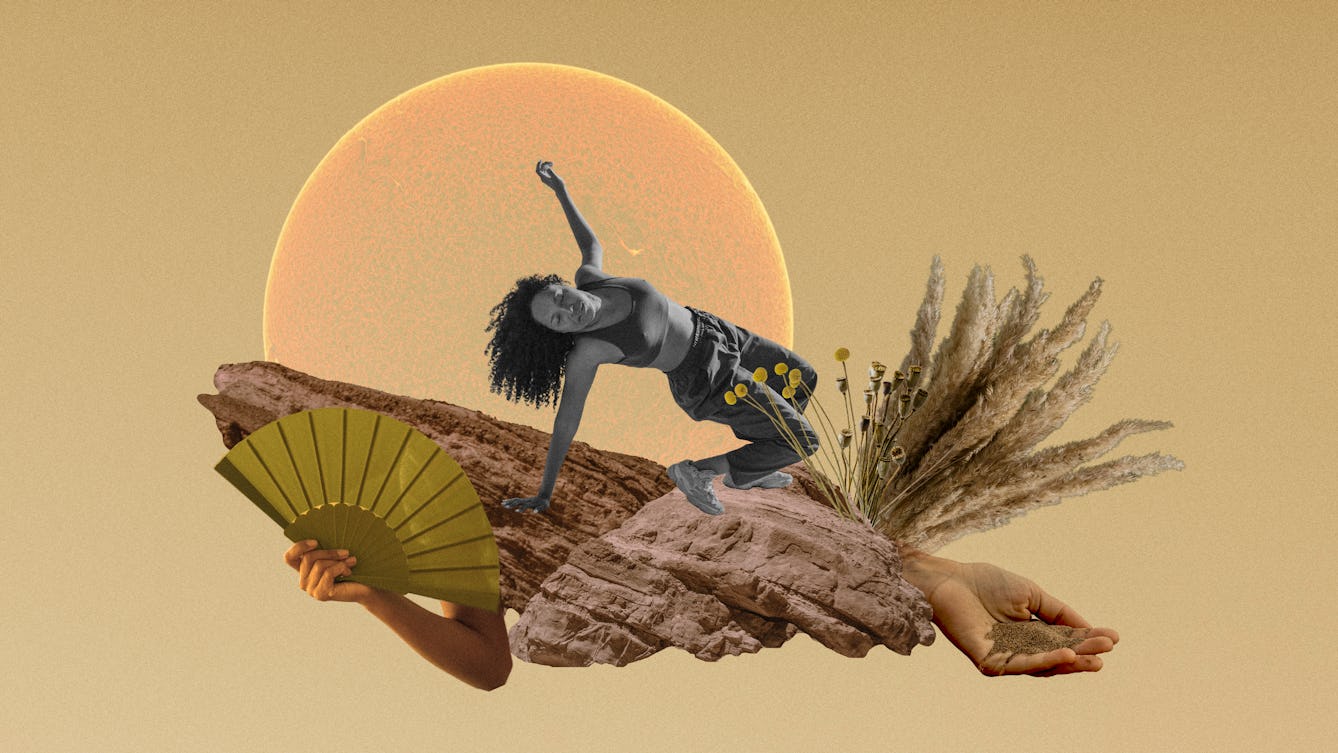
- Article
- Article
Heating up and drying out
Menopause doesn’t have to signify old age, but when your body feels like it’s letting you down, it’s hard not to believe that your useful life may be over.
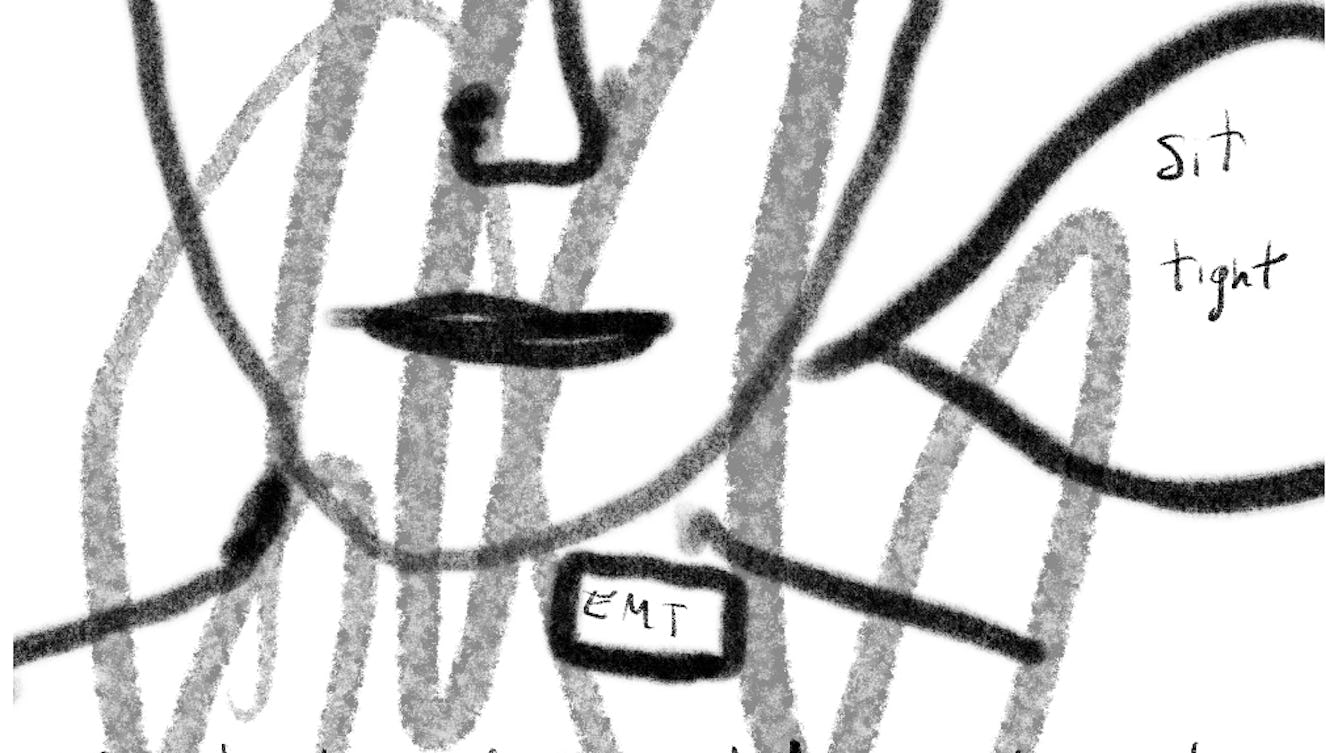
- Comic
- Comic
From psychotic to patient
And as the outside world seeps into your delusion, you experience a new reality and you gain a new identity.
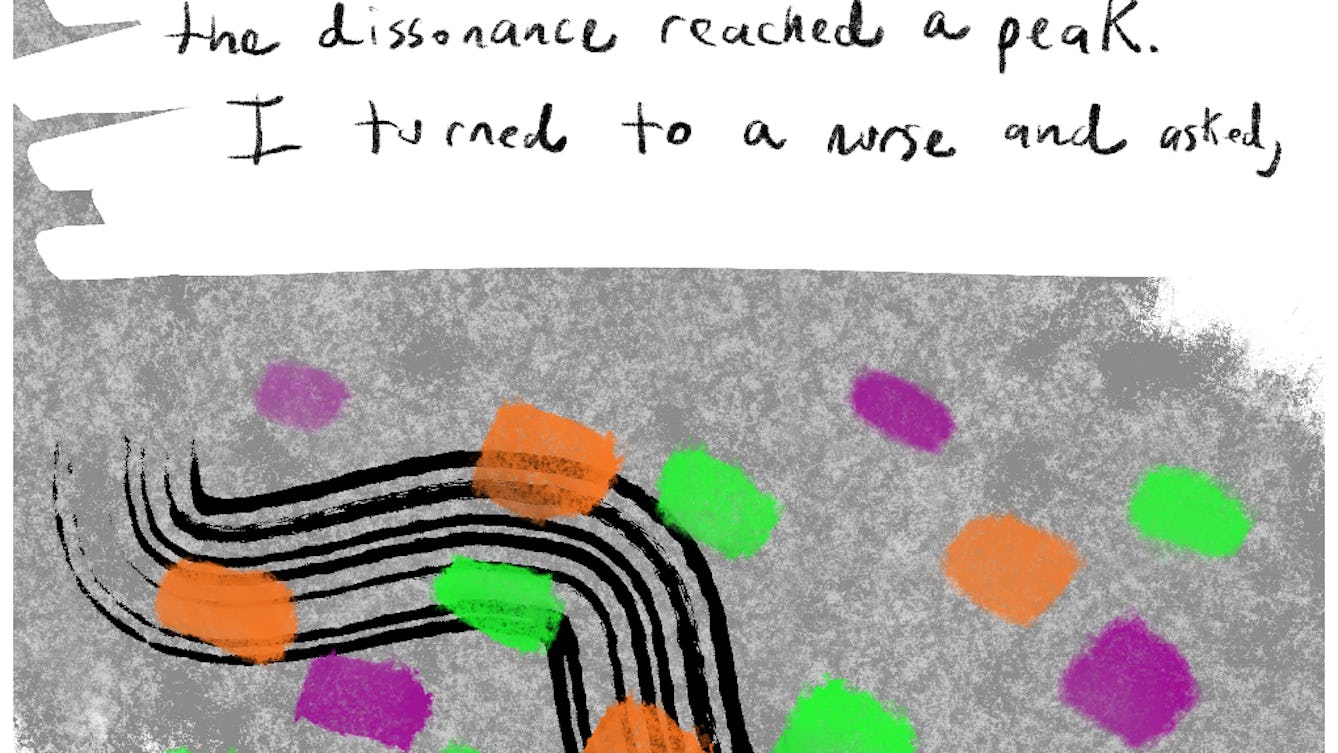
- Comic
- Comic
A glimpse of reality
As reality starts to break through your delusion you question everything you're hearing.
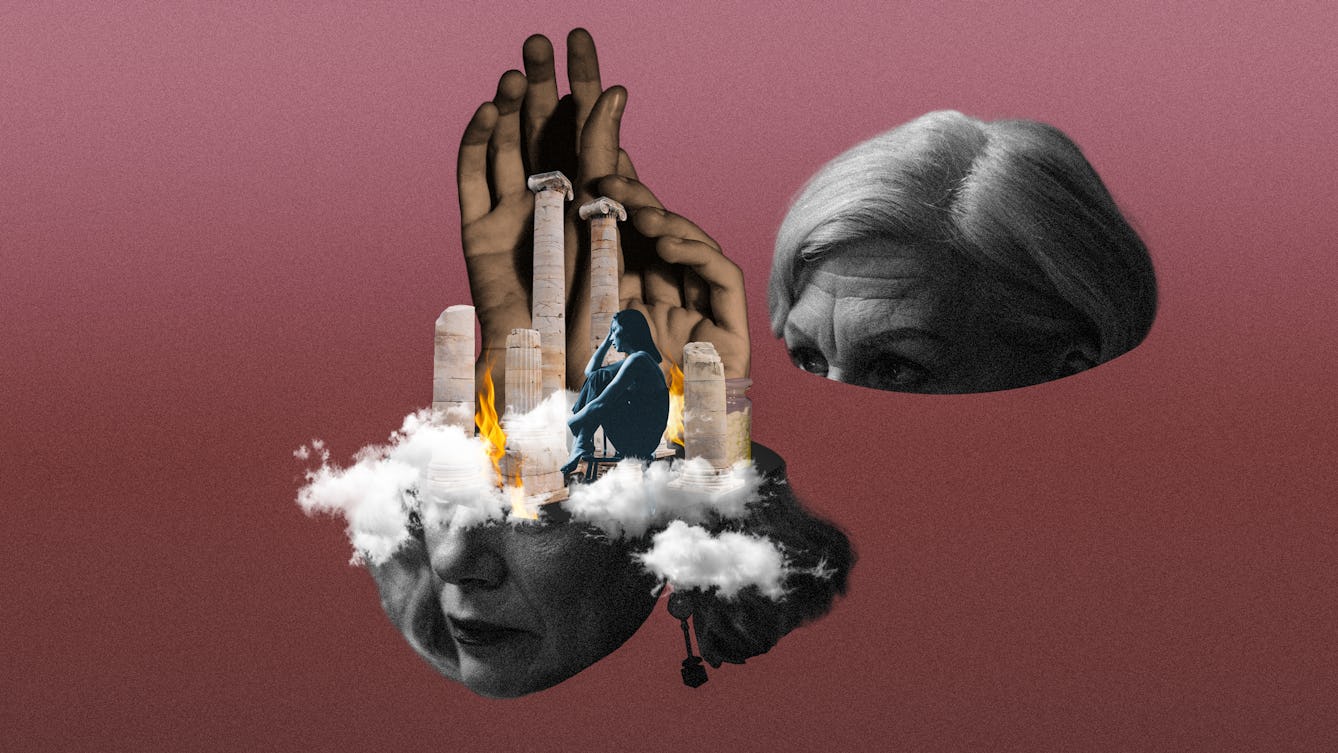
- Article
- Article
Hysteria
Mental health and emotional symptoms are common during menopause, but a long history of dismissing sufferers as 'hysterical women', at the mercy of their emotions has made it much harder to discuss these issues and to get support.
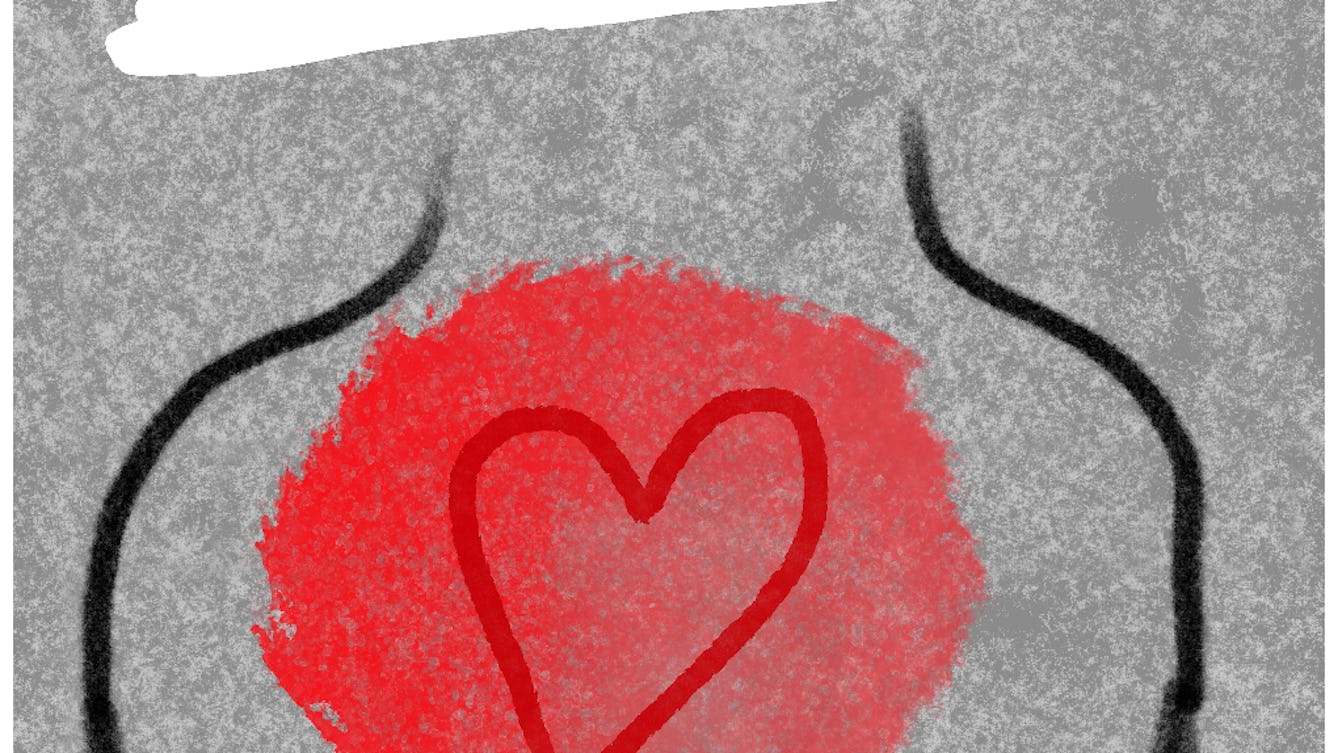
- Comic
- Comic
I was hallucinating
That moment when you realise that no one else sees what you see is when the dissonance becomes unbearable.
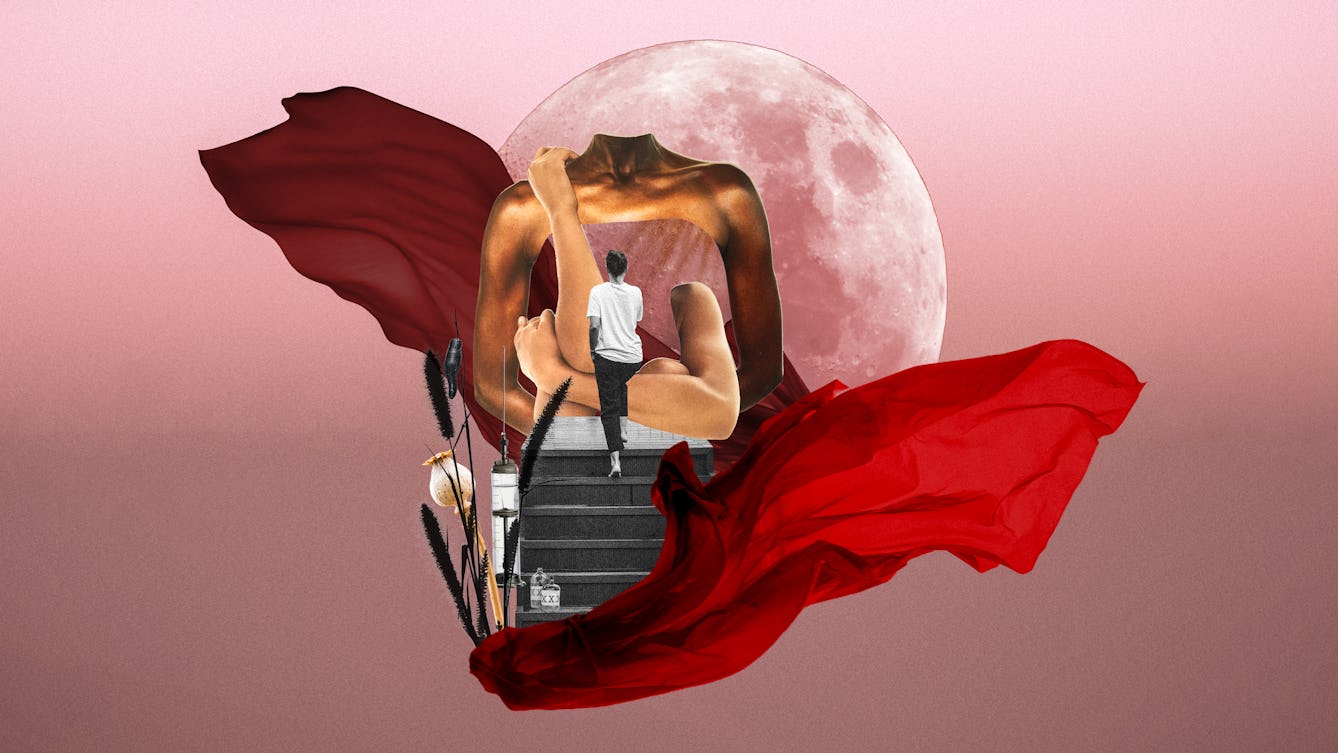
- Article
- Article
Blood
Discover the history, mythology and taboos around blood and menopause, and hear from some contemporary voices about their experiences of periods and the onset of menopause.
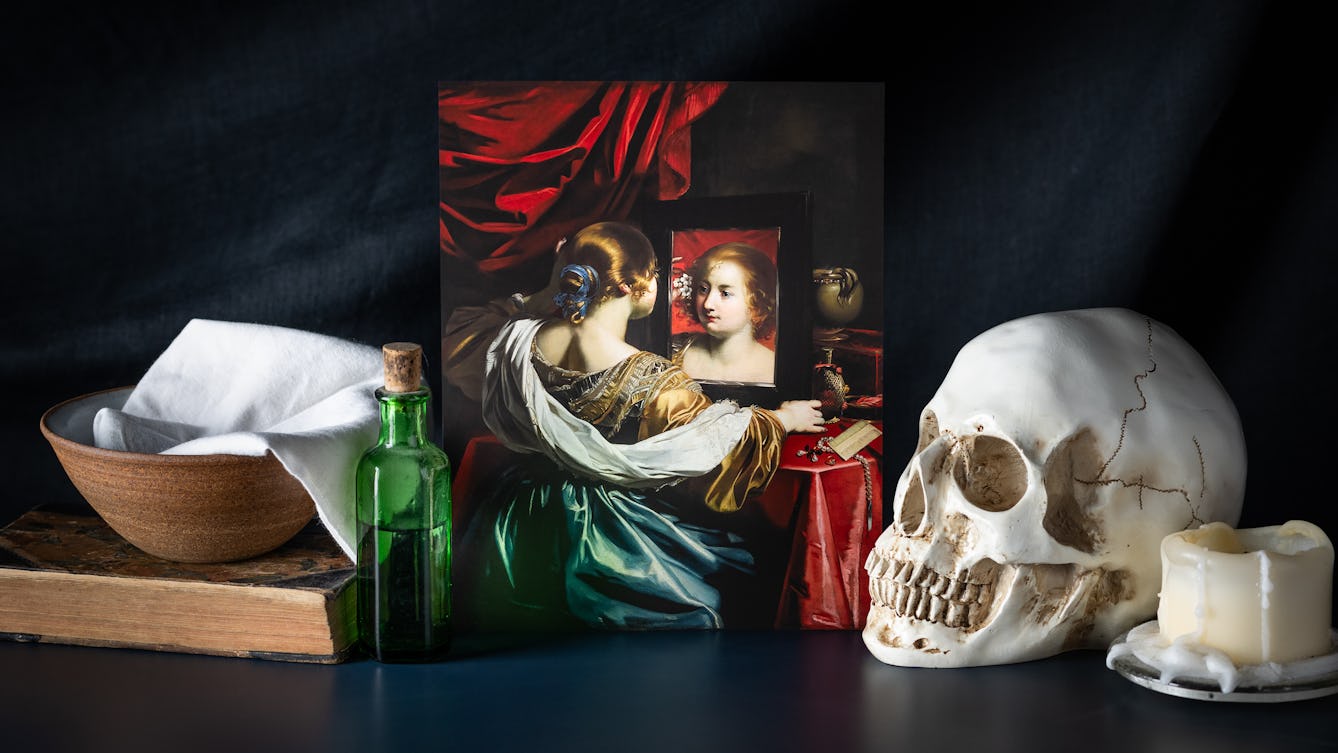
- Book extract
- Book extract
Renaissance women and their killer cosmetics
In this extract from ‘How to be a Renaissance Woman’, Jill Burke delves into a complex world of beauty products, poison and patriarchy – and reveals the impossible contradictions of femininity faced by 16th-century women.
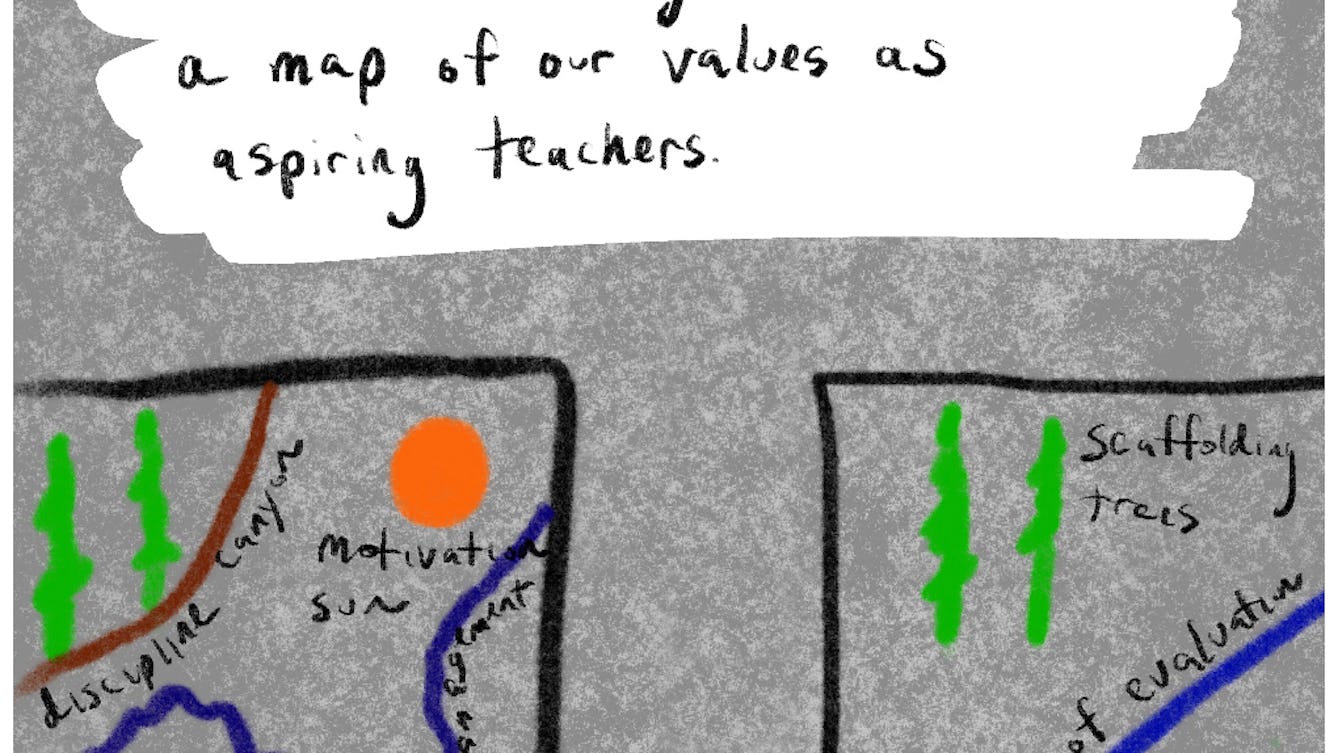
- Comic
- Comic
Disembodied and alone
Psychosis cuts you off from yourself. You become separated from both your body and your identity.
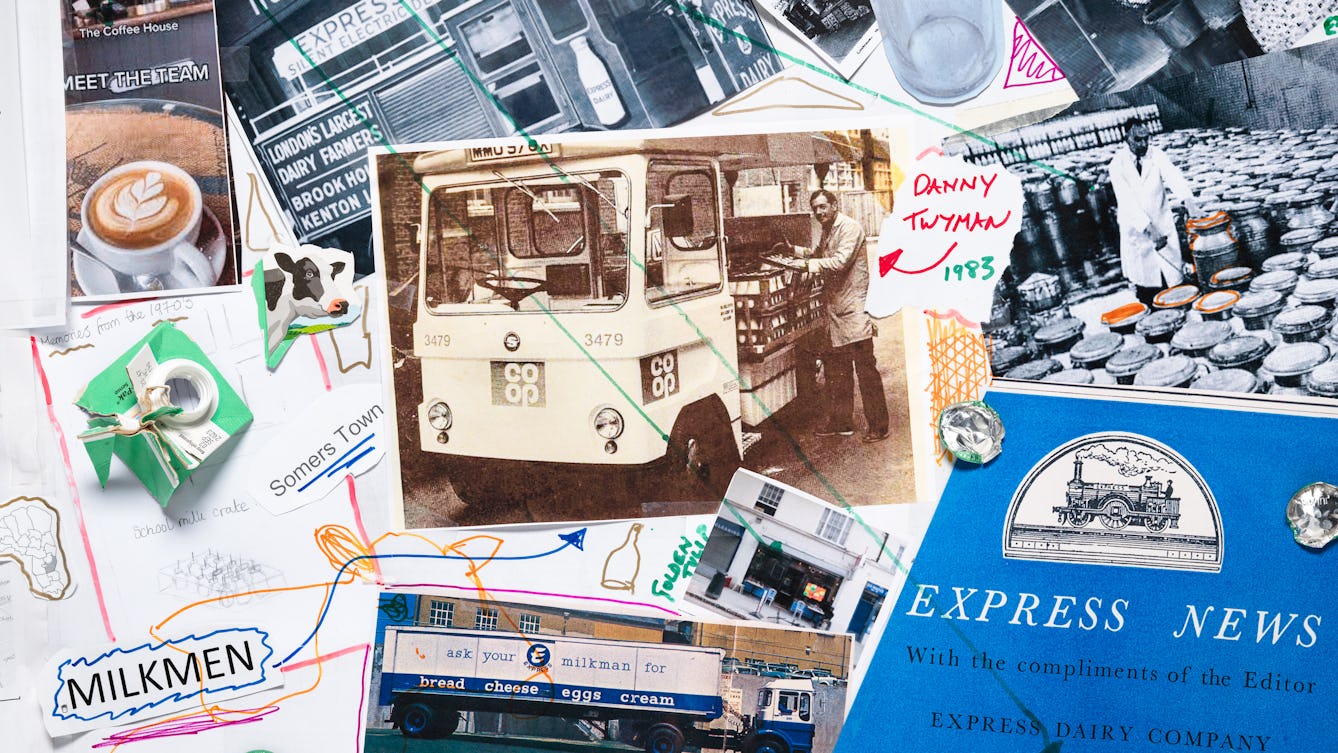
- Article
- Article
Milk trails round Euston
Where cows once grazed near Wellcome Collection in London, baristas now froth their milk. Esther Leslie uncovers Euston’s dairy-based urban history.
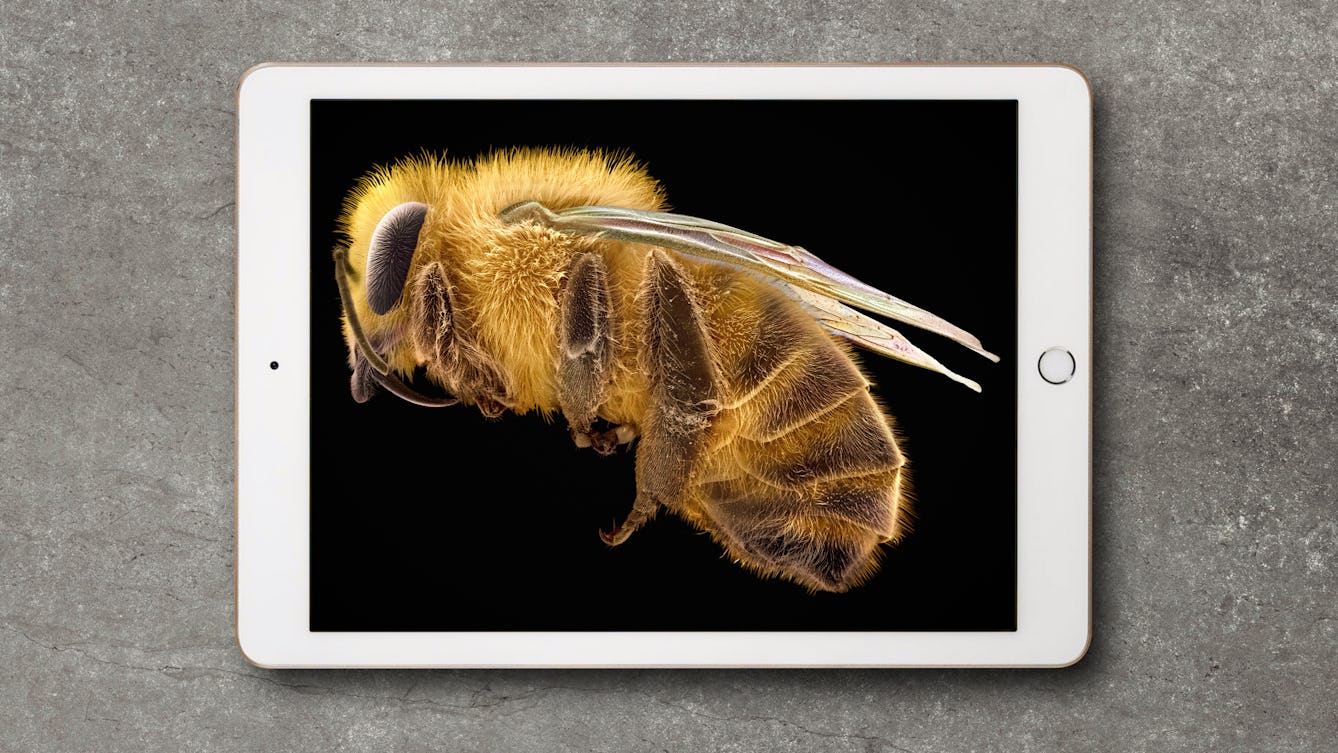
- In pictures
- In pictures
An appreciation of bees
Discover some un-bee-lievable stories about bees, their history and their uncertain future.
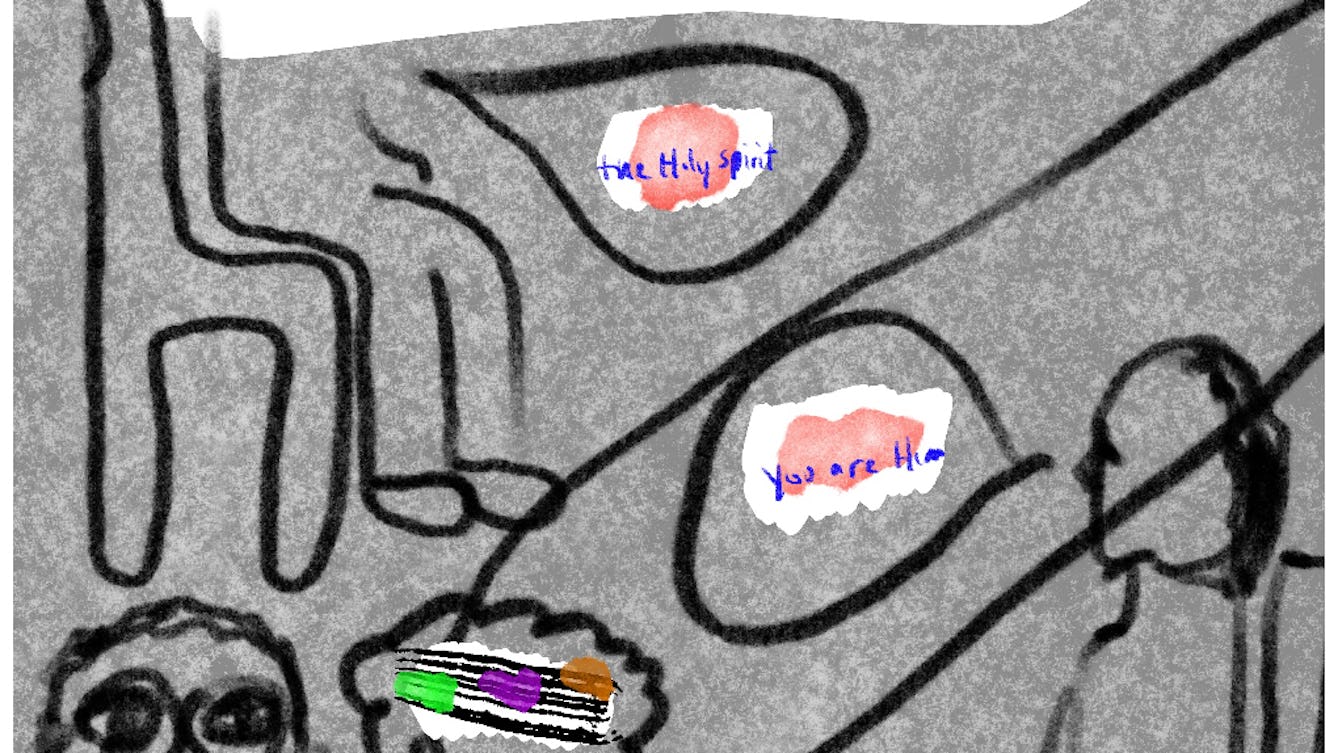
- Comic
- Comic
My delusion wasn’t shared
You can’t connect with people when you don’t share the same reality.